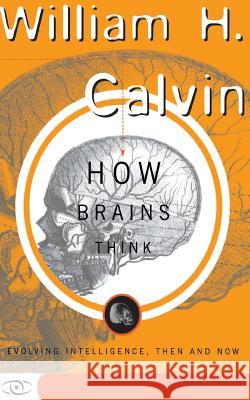How Brains Think: Evolving Intelligence, Then and Now » książka
How Brains Think: Evolving Intelligence, Then and Now
ISBN-13: 9780465072781 / Angielski / Miękka / 1997 / 192 str.
If you're good at finding the one right answer to life's multiple-choice questions, you're "smart." But "intelligence" is what you need when contemplating the leftovers in the refrigerator, trying to figure out what might go with them; or if you're trying to speak a sentence that you've never spoken before. As Jean Piaget said, intelligence is what you use when you don't know what to do, when all the standard answers are inadequate. This book tries to fathom how our inner life evolves from one topic to another, as we create and reject alternatives. Ever since Darwin, we've known that elegant things can emerge (indeed, self-organize) from "simpler" beginnings. And, says theoretical neurophysiologist William H. Calvin, the bootstrapping of new ideas works much like the immune response or the evolution of a new animal species--except that the brain can turn the Darwinian crank a lot faster, on the time scale of thought and action. Drawing on anthropology, evolutionary biology, linguistics, and the neurosciences, Calvin also considers how a more intelligent brain developed using slow biological improvements over the last few million years. Long ago, evolving jack-of-all trades versatility was encouraged by abrupt climate changes. Now, evolving intelligence uses a nonbiological track: augmenting human intelligence and building intelligent machines.











